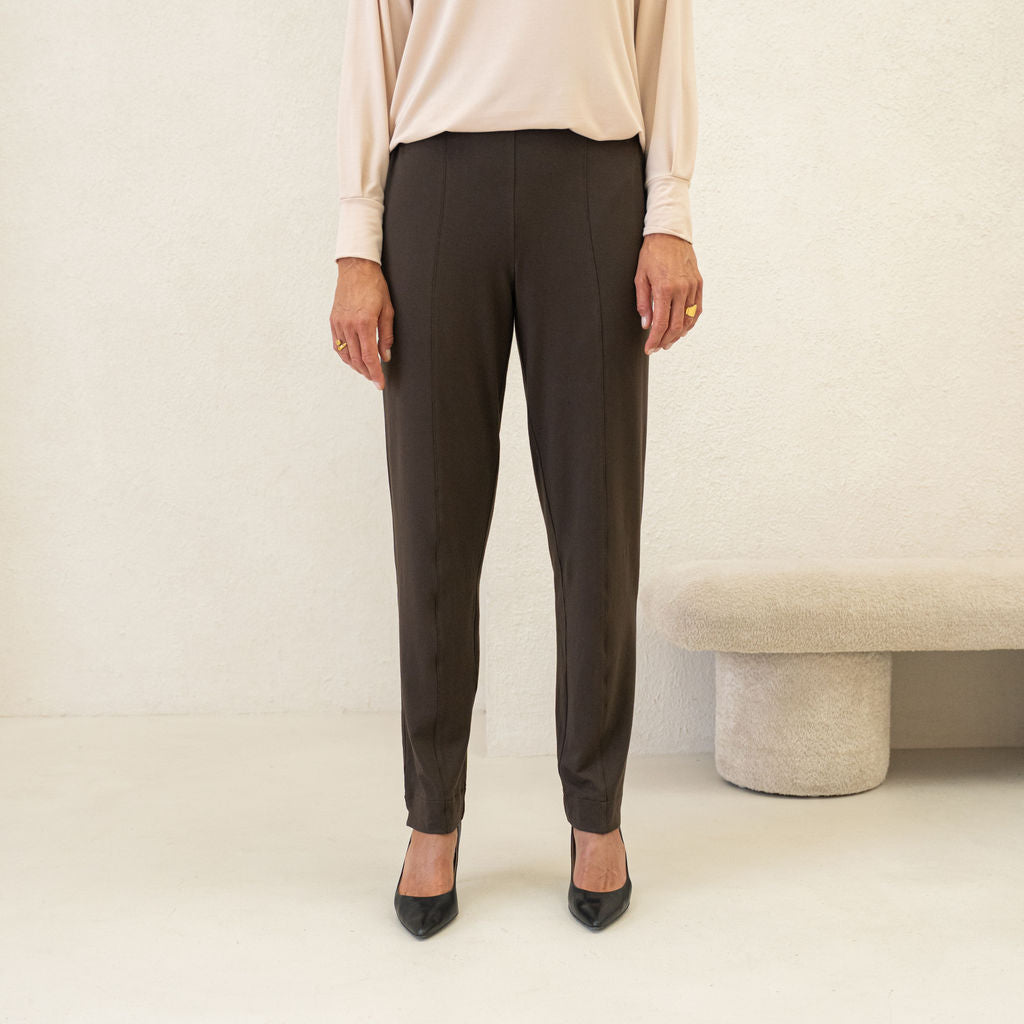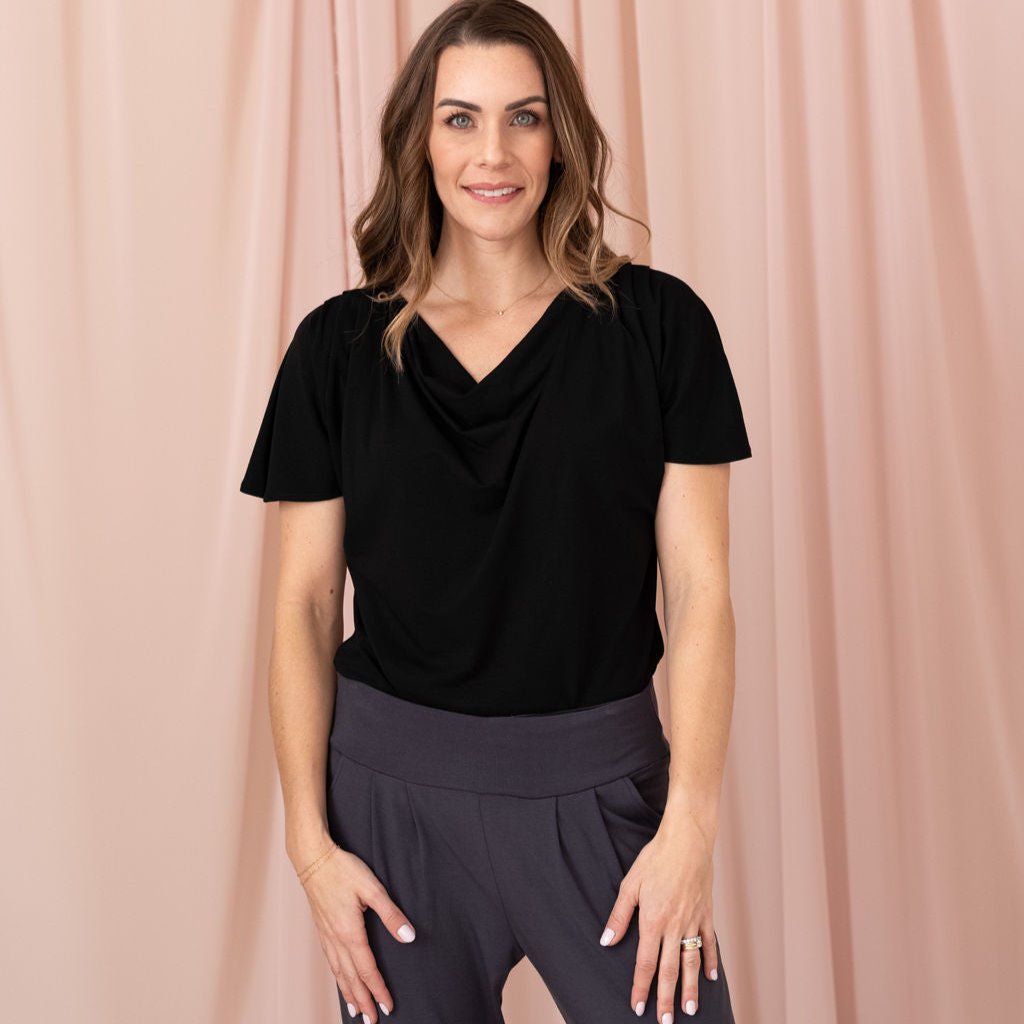How to Host a Clothing Swap
There is no better time to start minimizing your life - and your wardrobe, than now. No need to wait for the start of a new year, month or week, as any day is the perfect opportunity to start curating a more intentional wardrobe. If you’ve downloaded our free 16-page Minimalist Wardrobe Workbook, you’ll know that most women only wear 20% of their closet 80% of the time, meaning there's a whole 80% of clothing that rarely sees the light of day.
To get started on a closet refresh, consider hosting a clothing swap party with friends. Find a better home for those dresses you’ve only worn once to a wedding from many years ago, or those jeans that no longer fit. Having a clothing exchange party with friends is the perfect opportunity to responsibly release items from your wardrobe that you no longer wear and a time to shop for new pieces for your wardrobe in a more sustainable way.
No matter where you are today with your wardrobe, having a refined, minimalist closet IS possible. From decluttering your wardrobe, responsibly donating or disposing of your clothing or hosting a clothing swap party with family and friends, curating the perfect capsule wardrobe that meets your lifestyle needs is achievable with intentional and incremental steps.
To get you started with hosting a clothing swap and shopping second hand amongst friends, here are the 8 steps to hosting a successful clothing exchange party.
How To Host A Successful Clothing Swap Party
1. Invite Your Friends
The first step is to send an an e-invite like a Facebook Event to a group of friends at least 1-2 weeks before the swap. Start small, less than 10 will give a wide enough selection of pieces to swap from. In order to increase the clothing swap’s diversity and ensure everyone feels included, we recommend inviting an even mix of different body types and guests with a variety of clothing styles so no one feels left out. Start by inviting a few close friends and from there invite friends of friends to increase both your clothing swap’s diversity and allow for the chance to meet new people and extend your network of conscious friends.
2. Set Guidelines
Have a minimum and maximum number of pieces to bring. We recommend going with minimum 5, maximum 15 to ensure that everyone contributes evenly and there’s a fair selection to pick from as this increases the chances of everyone going home with a few new pieces they love. Give guidance on what to bring - ideally, clothing, accessories and shoes that are in good, clean or like new condition. No holes, stains, or broken zips and buttons. Check all pockets to make sure that there are no unwanted surprise gifts for the new owner. Friends should be bringing clothes they would feel comfortable giving to a close friend, as clothing swaps are not the place to bring their unwanted clothing that cannot be re-worn or repaired.
Setting the guidelines for the seasonality of the clothes being swapped is also recommended. Having a summer clothing swap party at the beginning of the season is a more eco-friendly option for wanting to have ethical clothing in your wardrobe and allows people to ‘shop’ one another's closets. Hosting clothing exchange parties twice a year with the change in seasons is a great way to refresh wardrobes and
3. Set Up The Clothing Swap Space
Set up a few clothes racks in a room in your home that has a lot of space. You can often rent racks, buy a few from Ikea or ask friends attending if they have any collapsible tables that they can lend you for the event. Remove any fragile items and reorganize furniture so that several people can get around the racking easily and comfortably. Ensuring there’s one table or space designated to accessories will also make the organization of the clothing swap easier for both host and guests/shoppers.
We also recommend getting any additional mirrors ready to help with try-ons and ask friends to bring hangers for their clothing items. To take everyone’s new belongings home, suggest that each guest bring a reusable tote bag to carry their items in and have a few on hand as the host in case anyone forgets.
4. Organize The Clothing By Category
Tops, bottoms, accessories, shoes, etc. Presentation is key, so we recommend setting up pieces with matching hangers and organizing by size and colour for a boutique shopping experience. You can choose to have different tables for each or have signs made from recycled cardboard placed around the room so when people get there they know where to put their items.
5. Create a Change Room
Designate a room(s) with full length mirrors for changing. We also recommend asking everyone to come to the event in a form fitted tank top and leggings so that pieces can be easily thrown over top if change rooms are full.
6. Manage The Swap
Allow everyone to introduce themselves and what they brought. Learning about the stories behind our pre-loved clothes is fun and sometimes inspiring. Allow a few people at a time to take 1 or 2 pieces to try on, and repeat. You may consider setting up a numbered draw to make it fair. We recommend splitting the group into 3, with each group having about 15 minutes to take their picks before the next group’s turn. To ensure the first group doesn’t take the bulk of the items, ask that everyone take a maximum of 3 items or so the first time and after each group has gone, the groups may go around the shop again or those eyeing up certain items are now welcome to add to their cart/tote bag.
7. Donate The Leftover Clothing
Find a local non-profit, charity or donation centre to support and donate any clothing that was not selected. Remember to donate items that are in good condition or research clothing donation locations that also participate in textile recycling to minimize any items sent to landfills.
8. Rinse + Repeat
Hold a clothing swap once a season, and rotate who hosts each time. It’s a fun way to ensure everything in your closet gets worn! Create a playlist, ask other attendees if they’d like to have a potluck and turn your clothing swaps into fun seasonal gatherings with the added benefit of eco shopping.
Tips For Shopping Secondhand
Before going to a clothing swap of shopping second hand as a more sustainable method of shopping for new items for your wardrobe, we recommend the following tips:
- Know your size or bring a small measuring tape with you. Knowing your size eases the online secondhand shopping process, helps you sort through clothing at in person second hand retail stores and speeds up the clothing swap process. Because clothing sizes vary based on the item and brand, carrying a small pocket sized measuring tape helps narrow down sizing.
- Look at the quality of the item. Look at the item in the light to ensure there’s minimal stains and damage, and to ensure no items are unnecessarily see-through. While you’re buying or swapping pre-owned items, having good quality items as part of your wardrobe helps you get the most out of your clothing and increases the chances of you wearing more than 20% of your current wardrobe.
- Ask yourself if you need the item or if you want the item. Seasonal clothing swaps are great opportunities to fill gaps in your wardrobe however if an item is simply a want, consider what other items in your current wardrobe could be paired with this new addition and to which events. If you’re likely to wear the new item multiple times it’s worth the purchase or swap amongst friends, however if it will be worn a minimal amount of times consider donating it to someone who needs the item and would provide the clothing article with a long second life.

Did you know that 70% of the carbon footprint of clothing comes from after you wear it? This is why it’s important to consider not only how you wash your clothing, but what happens to it after you’re done wearing it. Read more about it here.
Do you consider the carbon footprint of your clothes when purchasing or try to dispose of them responsibly when no longer used? Let us know in the comments below!
All photos are copyright Encircled. Contact us for permissions/rights to re-use or repost images.










Leave a comment